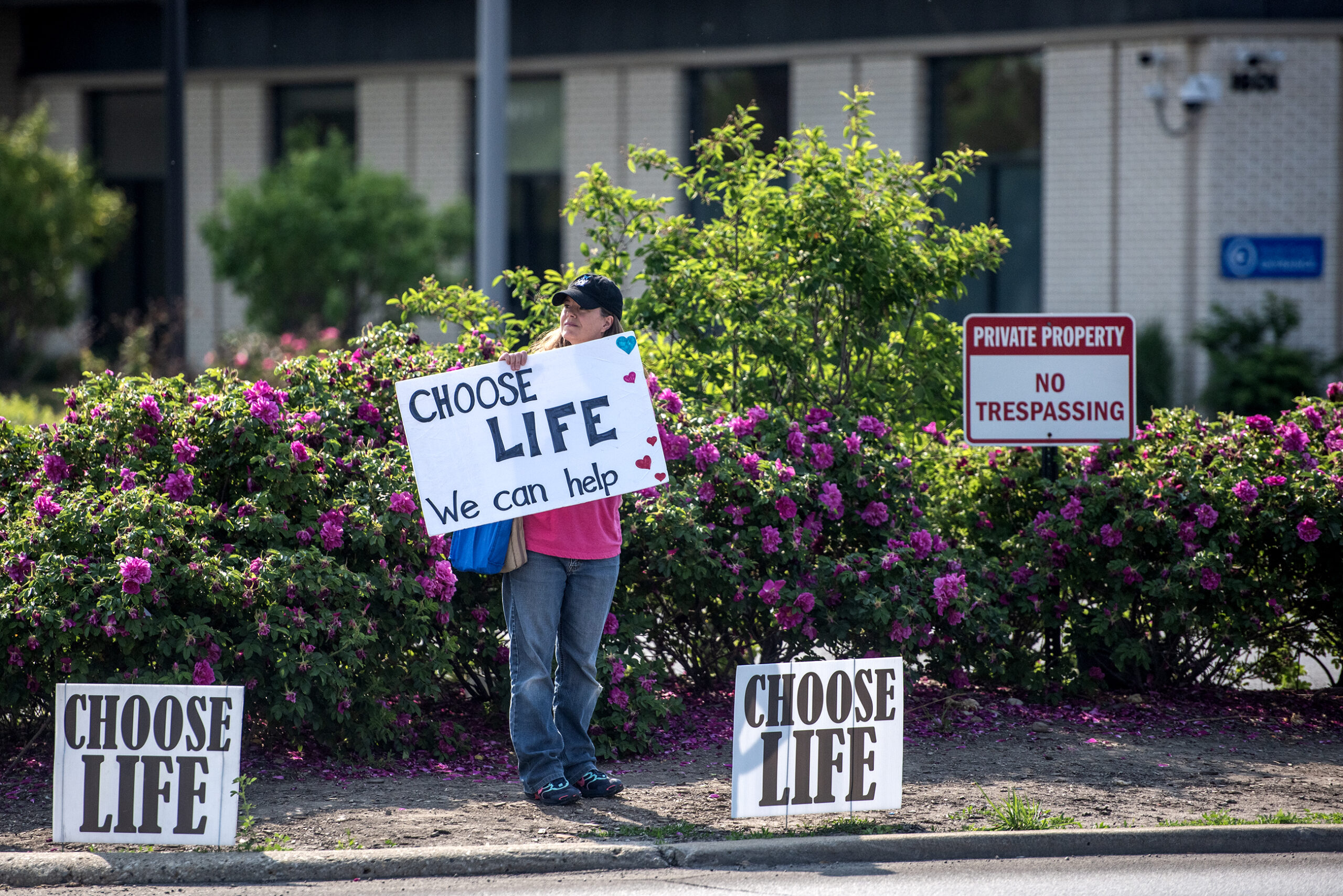As Catholic hospitals gain greater market share across the nation and in Wisconsin, there’s debate over what health care services they should provide.
Religious guidelines generally prohibit Catholic hospitals from providing abortions, sterilization and contraception, and that affects many women, said Dr. Kathy Hartke, past chairwoman of the Wisconsin Section of The American Congress of Obstetricians and Gynecologists.
“More and more small hospitals are being purchased by Catholic systems and they’ve lost their independence when they become part of that bigger system. That affects many, many women,” Hartke said.
News with a little more humanity
WPR’s “Wisconsin Today” newsletter keeps you connected to the state you love without feeling overwhelmed. No paywall. No agenda. No corporate filter.
Nationwide there’s been rapid consolidation of hospitals. This has resulted in a 22 percent increase in Catholic-sponsored or Catholic-affiliated hospitals between 2001 and 2016, according a recent study by the National Bureau of Economic Research.
The study examined inpatient data from six high-population states — Arizona, Florida, New Jersey, California, New York and Washington — and found the annual rate of abortions and tubal ligations at hospitals acquired by Catholic health systems decreased by almost a third across the nation.
Catholic status did not affect the number of cesarean sections performed, according to the report.
The report calls the reduction in tubal ligations at Catholic hospitals most concerning because it requires a second, separate hospitalization. Women who want to be sterilized often do so while they are still in the hospital after having a baby.
“It’s more anesthesia for the mother, its more risk to go back in (to the hospital) a second time, and we have religious directives telling the state how to spend money if it’s a Medicaid patient, which many of these women are,” said Hartke. “And it’s also harder for women. Twenty-five percent have to go back to work two weeks after having a baby. This is a terrible situation.”
Women of color and those who don’t have a college education are more likely to rely on sterilization for birth control, and nearly half of women with an unfilled sterilization request after giving birth become pregnant with a year, according to the report.
“Many are low-income and there’s a racial disparity in city of Milwaukee; it’s disproportionately affecting a certain group of women,” Hartke said of the religious guidelines on tubal ligation and abortion.
According to the study, Wisconsin is one of five states where more than 40 percent of hospital beds are Catholic-owned or -affiliated.
The Catholic health system, Ascension, is the largest nonprofit health system in the United States. It has 24 hospitals in Wisconsin and more than 100 clinics.
“As a Catholic health system, Ascension is committed to its mission of caring for all persons, with special attention to those who are poor and vulnerable, and follows the Ethical and Religious Directives for Catholic Health Care Services,” said Caryn Kaufman, senior director of public relations and community relations with Ascension Wisconsin.
Ascension has surpassed Aurora Health Care in market share in the state, said Allan Baumgarten, an independent analyst who studies trends, competition and organizations in local health markets. Baumgarten cites a 2017 Wisconsin Hospital Association survey showing Ascension has more hospitals but Aurora has more clinics.
Almost all of the hospitals examined in the national report kept their previous name, instead of changing to a name that is overtly Catholic. Hartke said patients may not realize they are at a Catholic hospital.
“The hospital that I was at was a community hospital but it did not have a Catholic name,” said Hartke who recently retired from Wheaton Franciscan — Elmbrook Memorial Campus, more commonly known as simply Elmbrook Memorial Hospital. The Brookfield hospital is a member of Wheaton Franciscan Healthcare in Brookfield.
“It wasn’t Saint Something or Other. Women just assumed it a was a community hospital, and so when a patient would come to me, I would explain if they wanted a tubal ligation or if they had a complication that was in the second trimester (of the pregnancy) for example, that as a Catholic hospital, choices were limited and they were shocked to find that out.”
The study found minimal overall welfare reductions in patient care at Catholic hospitals. It did not find a significant increase in complications from miscarriages or sterilization procedures. But the report concluded the decrease in tubal ligations imposed a substantial cost on women and their partners.
Wisconsin Public Radio, © Copyright 2026, Board of Regents of the University of Wisconsin System and Wisconsin Educational Communications Board.







